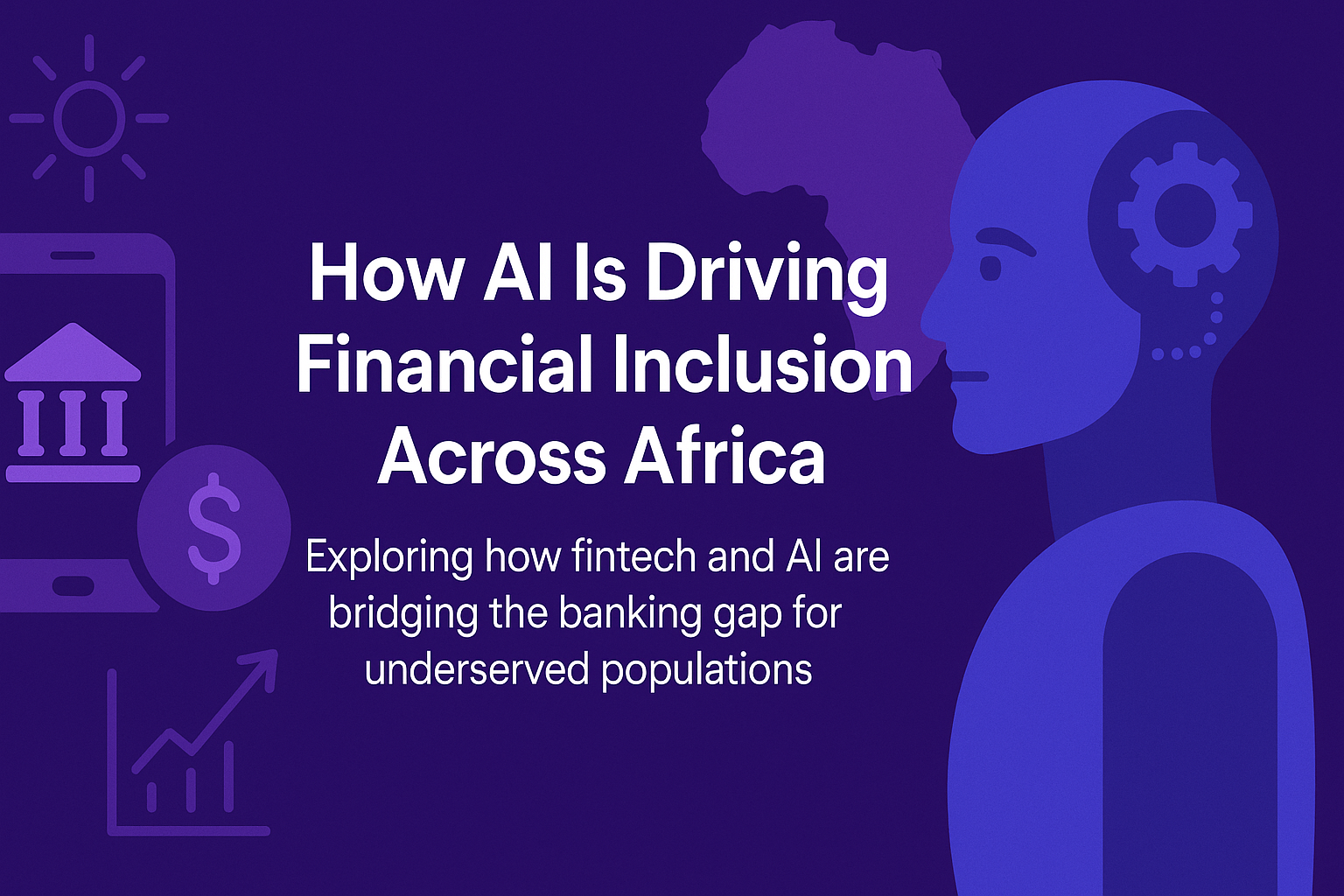How AI Is Driving Financial Inclusion Across Africa
Across Africa, millions remain unbanked, not by choice, but by circumstance. Traditional banking never quite reached the last mile. But today, AI is turning the tide. From voice-enabled banking in local dialects to alternative credit scoring using mobile data, artificial intelligence is redefining what financial inclusion looks like. At iWorld Africa, we’re not just watching this transformation, we’re building it.
Eliud Njoroge
Staff Writer

How AI Is Driving Financial Inclusion Across Africa.
Exploring how fintech and AI are bridging the banking gap for underserved populations.
A Personal Journey into Africa's Financial Transformation
Having spent over two decades immersed in Africa's financial landscape, I've witnessed firsthand the challenges and triumphs of bringing banking services to the continent's underserved populations. From the bustling streets of Lagos to the remote villages of northern Kenya, the narrative has been consistent: traditional banking systems often fall short in reaching the masses. However, the advent of Artificial Intelligence (AI) in fintech is rewriting this story, offering unprecedented opportunities for financial inclusion.
The Unbanked Majority: A Persistent Challenge
Africa is home to a significant unbanked population. According to the World Bank, over 350 million adults in sub-Saharan Africa lack access to formal financial services. This exclusion hampers economic growth, limits access to credit, and perpetuates poverty cycles. Traditional banks, with their brick-and-mortar models, often find it unprofitable to serve remote or low-income communities.
AI: The Catalyst for Financial Inclusion
AI is emerging as a game-changer in addressing these challenges. Here's how:
1. Alternative Credit Scoring
Many Africans lack formal credit histories, making it difficult for them to access loans. AI algorithms can analyze alternative data—such as mobile phone usage, utility payments, and social media activity—to assess creditworthiness. Companies like Tala Finance utilize smartphone data to provide instant credit scores, enabling millions to access microloans without traditional credit checks.
2. Voice AI and Multilingual Support
Language and literacy barriers have long hindered financial inclusion. Voice AI technologies, capable of understanding local dialects, are bridging this gap. By enabling users to interact with financial services through voice commands, even those with limited literacy can perform transactions, check balances, or apply for loans.
3. Fraud Detection and Security
Security concerns deter many from adopting digital financial services. AI-driven fraud detection systems can monitor transactions in real-time, identifying and preventing suspicious activities. This not only protects users but also builds trust in digital platforms.
Real-World Impact: Success Stories
Several African fintech companies are leveraging AI to drive financial inclusion:
-
M-Kopa: Operating in countries like Kenya and Nigeria, M-Kopa provides affordable smartphones and solar kits through a pay-as-you-go model. Their AI-driven analytics assess customer payment behaviors, enabling them to offer additional financial services like loans and insurance.
-
PalmPay: With over 35 million users, PalmPay utilizes AI to offer user-friendly mobile banking services, including bill payments and instant transfers. Their "smartphone-first" strategy, combined with AI, ensures services are tailored to user needs.
-
Nsano: Based in Ghana, Nsano employs AI to facilitate secure mobile money transactions across multiple African markets, enhancing trust and accessibility.
iWorldAfric: Pioneering Digital Solutions
At iWorld Afric, we're at the forefront of integrating AI into fintech solutions tailored for the African market. Our platforms harness AI to provide personalized financial services, ensuring that even the most remote communities have access to banking. By analyzing user behavior and preferences, we offer solutions that resonate with local needs, fostering trust and adoption.
Challenges Ahead: Navigating the AI Landscape
While AI offers immense potential, challenges persist:
-
Data Privacy: Ensuring user data is protected is paramount. Robust data governance frameworks are essential to maintain trust.
-
Infrastructure: Reliable internet and electricity are prerequisites for digital services. Investments in infrastructure are crucial
-
Digital Literacy: Educating users on digital tools ensures they can effectively utilize available services.
The Road Ahead: A Collaborative Effort
The journey towards comprehensive financial inclusion in Africa is a collective endeavor. Governments, private sectors, and communities must collaborate to create an ecosystem where AI-driven fintech solutions can thrive. At iWorld Africa, we're committed to this mission, continuously innovating to bridge the financial gap and empower every African with the tools they need to succeed.
Join us in this transformative journey. Discover how iWorld Africa is redefining financial inclusion through AI-powered solutions tailored for Africa's unique needs.
Related Topics
Related Articles
Stay Updated
Get the latest insights and trends delivered to your inbox.
We respect your privacy. Unsubscribe at any time.
More Articles
Continue exploring our latest insights and articles